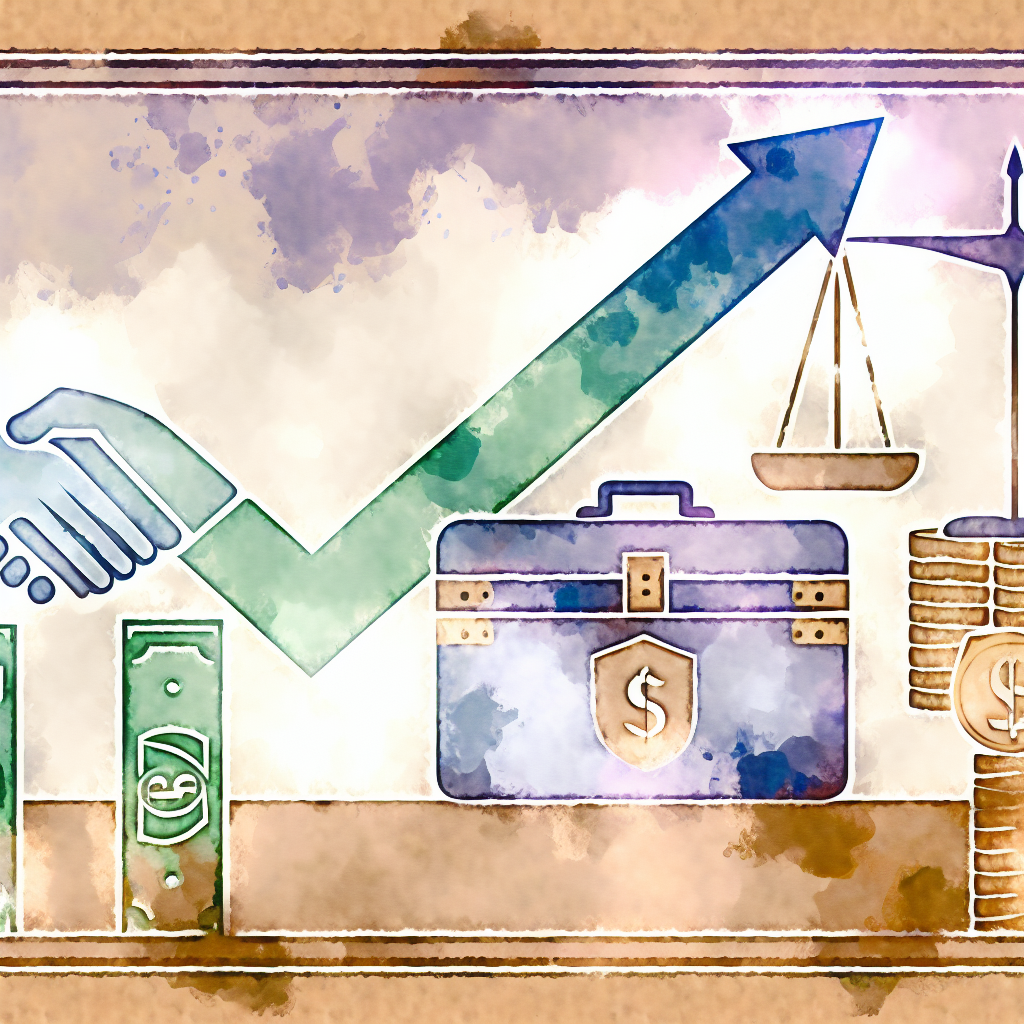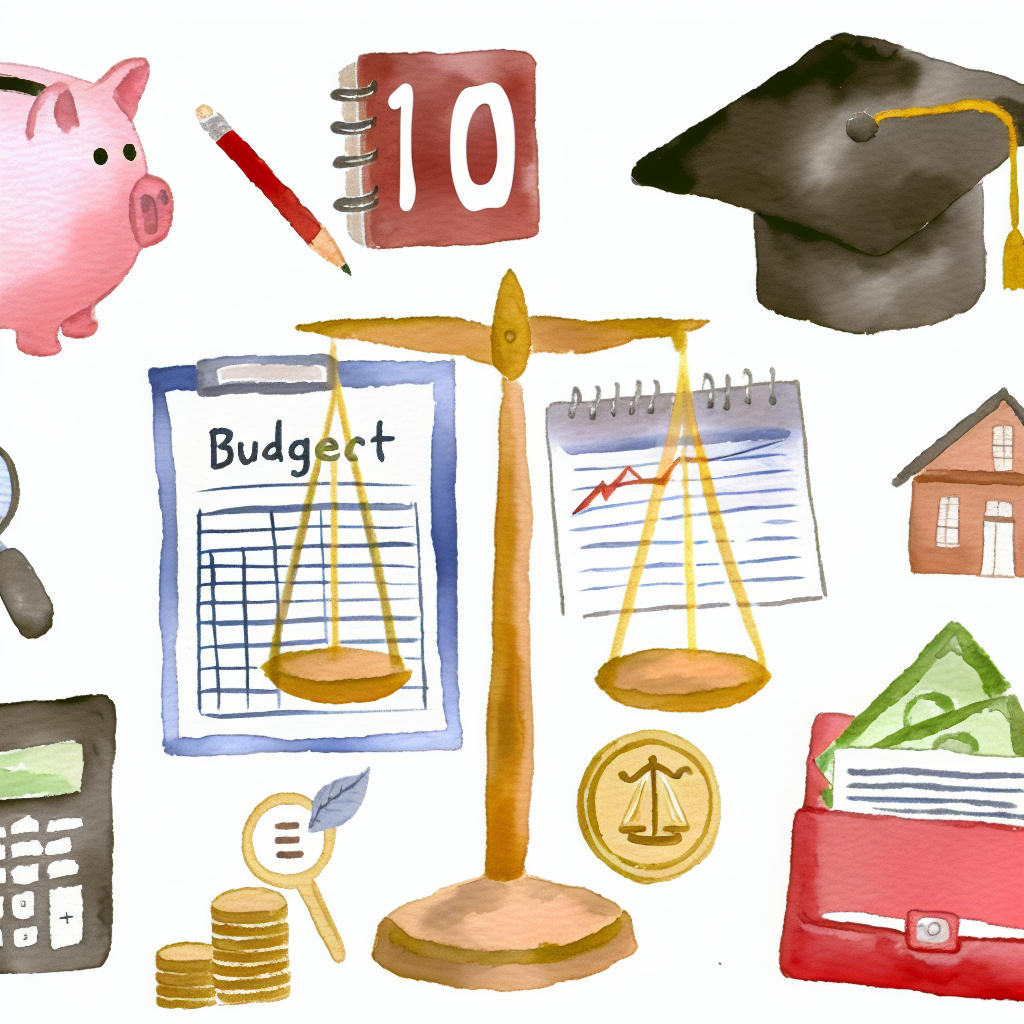Introduction: The Impact of Divorce on Credit
Divorce is not just an emotional whirlwind; it has significant financial ramifications as well. Many individuals come out of the process saddled with debt, disputed assets, and a strained financial outlook. One of the most easily overlooked casualties in the wake of a divorce is one’s credit score. Often, these scores can take a substantial hit during and after the legal proceedings. If you’re currently finding yourself in this situation, it’s crucial to understand that you can take steps to recover your credit score post-divorce.
A downturn in credit can happen for multiple reasons: missed payments on shared debts, the division of joint accounts, or even legal fees. If your financial habits were previously intertwined with your ex-spouse’s, untangling these aspects can be complicated and sometimes detrimental to your credit health. Understanding the impact of divorce on credit is the first step toward making a financial turnaround.
Rebuilding credit may seem like a daunting task, especially when you’re already dealing with the emotional toll of divorce. But with strategic planning and disciplined actions, it’s possible to regain your financial footing. Key to this journey is recognizing that credit repair is a progressive endeavor—it won’t happen overnight, but persistence and consistency will yield results.
This comprehensive guide will walk you through the actionable steps you can take to improve credit after divorce. From assessing your current credit situation to establishing your own lines of credit, paying off debts, monitoring your credit report, and even seeking professional credit counseling, this article will offer valuable insights to facilitate your financial recovery post-divorce.
Assessing Your Current Credit Situation
Before you can make any substantial improvements, you need a clear understanding of your current financial standing. The first step to improve credit after divorce is to assess your current credit situation. Start by obtaining a free copy of your credit report from the three major credit bureaus—Equifax, Experian, and TransUnion.
Once you have your credit reports, scrutinize them carefully. Look for incorrect or outdated information that could be dragging down your score. Common errors include incorrect account balances, outdated personal information, fraudulent accounts, or missed payments that you may have actually made on time. Contest any inaccuracies immediately by filing disputes with the respective credit bureaus.
Next, take note of all your outstanding debts and their terms. This includes credit card balances, loans, mortgages (if any), and any financial obligations where you are a co-signer. Understanding your liabilities will help you plan your payment strategies effectively. List out these debts in a table to better visualize your commitments:
| Debt Type | Lender | Balance | Interest Rate | Minimum Payment |
|---|---|---|---|---|
| Credit Card | Bank A | $5,000 | 18% | $150 |
| Auto Loan | Lender B | $12,000 | 5% | $250 |
| Personal Loan | Lender C | $8,000 | 12% | $200 |
| Mortgage | Bank D | $150,000 | 4% | $1,200 |
| Joint Credit Card | Bank E | $2,500 | 20% | $75 |
Creating a Post-Divorce Budget
A practical, well-structured budget is an essential tool for financial recovery post-divorce. Begin by listing all your income sources, including your salary, alimony, child support, or any other regular income you might have. This will give you a clear picture of what resources you have to work with each month.
Next, outline all your monthly expenses. These should be divided into two categories: fixed and variable. Fixed expenses are those that remain consistent each month, such as rent or mortgage, car payments, and insurance premiums. Variable expenses can fluctuate and include groceries, utilities, entertainment, and other discretionary spending.
Creating a budget template can simplify this process. Here’s an example:
| Expense Type | Description | Monthly Cost |
|---|---|---|
| Fixed | Rent/Mortgage | $1,200 |
| Fixed | Car Payment | $300 |
| Fixed | Insurance Premiums | $150 |
| Variable | Groceries | $400 |
| Variable | Utilities | $200 |
| Variable | Entertainment | $100 |
Set priorities for your spending to ensure you cover the essentials first, like housing, utilities, and food. This foundational layer allows you to allocate funds toward paying off debts and possibly building an emergency fund—a critical safety net during the uncertainty that often follows a divorce. Make sure your budget is realistic and sustainable to avoid falling back into debt, which can further harm your credit score.
Managing Joint Accounts and Debts
Managing joint accounts and debts after divorce is one of the most challenging yet crucial aspects of improving your credit. One of the first steps is to separate joint accounts as soon as possible. Leaving these accounts open can lead to missed payments or irresponsible usage by your ex-spouse, both of which can damage your credit further.
Identify all the financial accounts you shared with your ex-spouse. Joint credit cards, loans, and bank accounts should be closed or restructured under individual ownership to prevent future liabilities. Contact your bank or lender to discuss the process of removing one party from the account or converting a joint account into an individual one. Here’s a quick checklist to manage joint accounts effectively:
- Review all shared accounts and debts
- Contact creditors for account changes or settlements
- Close joint credit cards and open new individual accounts
- Transfer balances to individual accounts if possible
- Formalize any informal agreements through your divorce settlement
Next, establish a plan to deal with outstanding joint debts. Ideally, these should be paid off in full as part of the divorce settlement to avoid future conflicts. If this isn’t possible, ensure you have a written agreement detailing who is responsible for paying off which debts. While divorce decrees outline who should pay the debts, they don’t absolve your responsibility to the creditors. Both parties remain liable until the debts are fully paid or refinanced in one person’s name.
Establishing Your Own Credit
Re-establishing your own credit is a significant step to improving your financial health post-divorce. If most of your credit was linked to joint accounts, you might find yourself with a limited credit history. Start by opening new lines of credit in your name. This can include securing a new credit card, applying for a small personal loan, or co-signing on a loan with a trusted individual.
A secured credit card is an excellent option if your current credit score is too low to qualify for a traditional credit card. With a secured credit card, you deposit a certain amount upfront as collateral, which then becomes your credit limit. Using this card responsibly—keeping the balance low and paying it off in full each month—will help you build your credit history and raise your credit score over time.
Another method to establish credit is to become an authorized user on a family member or close friend’s credit card account. As an authorized user, you will benefit from the primary cardholder’s good credit history, which can improve your score without you having to qualify for a new card independently. Make sure, however, that the primary cardholder has a strong credit history and manages their accounts responsibly, as their credit habits will directly impact your score.
Taking these steps will help you establish a credit history under your own name, an essential factor in building and maintaining a good credit score.
Paying Bills on Time
Paying your bills on time is one of the most effective strategies to improve your credit score after a divorce. Timely payments account for a substantial portion of your credit score calculation, making it a critical habit to develop. Here are some tips for staying on top of your payments:
- Set up automatic payments: Automatic payments ensure you never miss a due date. Most banks and creditors offer this service, allowing you to automate payments for credit cards, loans, utilities, and more.
- Use reminders: If you prefer not to automate, consider setting up reminders in your calendar or using reminder apps specifically designed for bill payments.
- Prioritize debts: When funds are tight, prioritize payments based on their impact on your credit score and essential services.
Consistency is key. Even one late payment can cause a dip in your credit score, so aim to make all your payments on time, every time. If you’re at risk of missing a payment, contact your creditor immediately to discuss an extension or alternative payment plan. Additionally, maintaining a schedule for bill payments can foster a disciplined financial routine, which will benefit you in the long run.
Reducing Credit Utilization Ratio
Another critical factor in credit score improvement post-divorce is your credit utilization ratio. This ratio is the percentage of available credit you are using and plays a significant role in your overall credit score. A lower utilization ratio indicates that you’re managing your credit responsibly and not overly reliant on borrowing.
To calculate your credit utilization ratio, divide your total outstanding credit card balances by your total credit limits and multiply by 100 to get a percentage. Here’s a simple formula:
Credit Utilization Ratio = (Total Credit Card Balances / Total Credit Limits) * 100
For example, if you have a total credit card balance of $3,000 and your combined credit limit is $10,000, your utilization ratio is 30%.
Here are strategies to reduce your credit utilization ratio:
- Pay down debt: Focus on reducing outstanding balances on credit cards. Even small payments can make a difference.
- Increase credit limits: If you have maintained a good relationship with your creditors, request an increase in your credit limits. This can lower your utilization ratio, but be cautious not to accrue more debt.
- Limit new spending: Minimize new credit card purchases until you have significantly lowered your balances.
Aim to keep your credit utilization ratio below 30%, and ideally below 10%, to see a positive effect on your credit score.
Monitoring Your Credit Report
Regularly monitoring your credit report is an essential part of financial recovery after a divorce. By keeping a close eye on your credit report, you can quickly identify and address any inaccuracies that might be affecting your score. You can request a free copy of your credit report from each of the three major credit bureaus once a year via AnnualCreditReport.com.
Look specifically for:
- Incorrect personal information: Ensure that your name, address, and other personal details are correct.
- Mistaken account information: Check for accounts you do not recognize, incorrect balances, and wrongly reported late payments.
- Dispute errors: If you find any discrepancies, immediately file a dispute with the credit bureau reporting the error. They are required to investigate and correct wrong information within 30 days.
Monitoring your credit report is also an excellent way to guard against identity theft—a common issue that can arise during and after the turmoil of a divorce. Additionally, some credit cards and financial institutions offer free credit score tracking, which can provide a quick snapshot of your current credit status.
Seeking Professional Credit Counseling
If the process of improving your credit post-divorce feels overwhelming, you may benefit from seeking professional credit counseling. Certified credit counselors can offer personalized advice and strategies tailored to your specific financial situation, helping you recover your credit score post-divorce more efficiently.
Credit counseling agencies provide a range of services, including:
- Debt management plans: These plans consolidate your debts into a single monthly payment and may negotiate lower interest rates with your creditors.
- Financial education: Includes workshops and materials to help you understand credit, budgeting, and financial planning.
- Credit report reviews: A counselor will review your credit report with you, helping you identify and rectify issues.
When seeking a credit counseling service, ensure it’s accredited and has a good reputation. The National Foundation for Credit Counseling (NFCC) and the Financial Counseling Association of America (FCAA) are reputable organizations that can guide you toward legitimate, non-profit credit counseling agencies.
Conclusion: Patience and Persistence
Improving your credit score post-divorce is a journey that requires patience and persistence. The financial turmoil stemming from a divorce can be daunting, but with a structured approach, you can regain control of your credit health. Start by assessing your current credit situation, creating a realistic budget, and managing joint accounts responsibly.
Establishing your own credit, paying bills on time, and reducing your credit utilization ratio will set you on a path toward credit repair. Regularly monitoring your credit report and seeking professional guidance when necessary can further bolster your efforts.
You may not see immediate results, but consistency in these actions will lead to gradual improvements in your credit score. Financial recovery is a progressive endeavor, and every small step you take contributes to your overall financial stability and independence.
Recap
- Assess your current credit situation by obtaining and reviewing your credit reports.
- Create a post-divorce budget to manage your income and expenses efficiently.
- Manage joint accounts and debts to prevent further credit damage.
- Establish credit in your name through new credit lines or becoming an authorized user.
- Pay all your bills on time and prioritize payments to protect your credit score.
- Reduce your credit utilization ratio by paying down debt and possibly increasing credit limits.
- Monitor your credit report regularly to identify and dispute inaccuracies.
- Seek professional credit counseling for personalized advice and assistance.
FAQ
Q: How long does it take to improve credit after divorce? A: The time it takes varies, but consistent efforts can lead to noticeable improvements within 6 to 12 months.
Q: Will closing joint accounts hurt my credit score? A: Closing accounts can temporarily affect your credit score, but it’s often necessary to prevent misuse and further debt accumulation.
Q: Can I improve my credit score if my ex-spouse defaults on joint debts? A: yes, but it may require disputing inaccuracies on your credit report and possibly seeking legal recourse.
Q: Should I pay off credit card debt first? A: Yes, credit card debt usually has higher interest rates and impacts your credit utilization ratio.
Q: Is a secured credit card a good option post-divorce? A: Yes, it can help you establish or rebuild credit with responsible usage.
Q: Can I dispute my ex-spouse’s debts on my credit report? A: You can dispute errors, but legitimate debts incurred during marriage may still affect your credit.
Q: How often should I check my credit report? A: Check at least annually, but more frequently if actively working on credit improvement.
Q: What if I can’t afford to pay my debts? A: Contact creditors to discuss hardship options or seek help from a credit counseling agency.
References
- National Foundation for Credit Counseling (NFCC). (n.d.). www.nfcc.org.
- Annual Credit Report.com. (n.d.). www.annualcreditreport.com.
- Financial Counseling Association of America (FCAA). (n.d.). www.fcaa.org.











